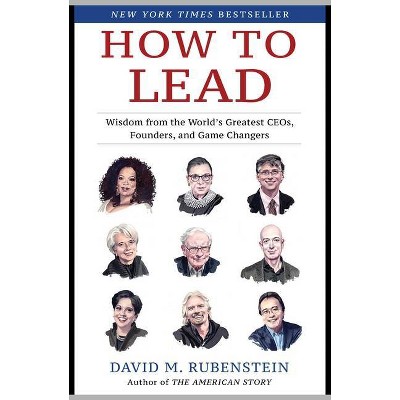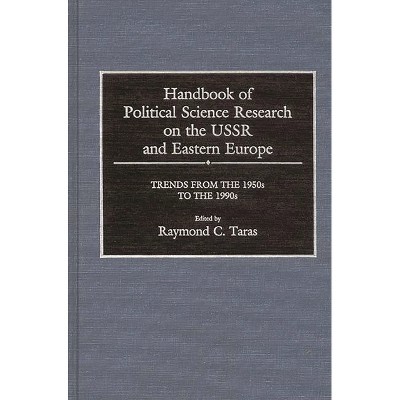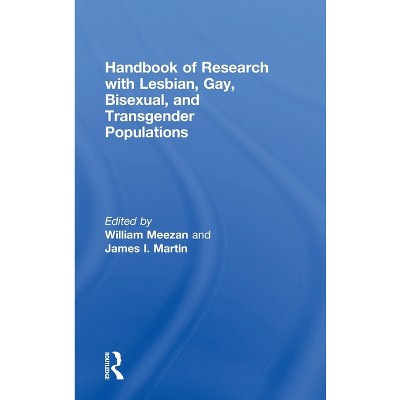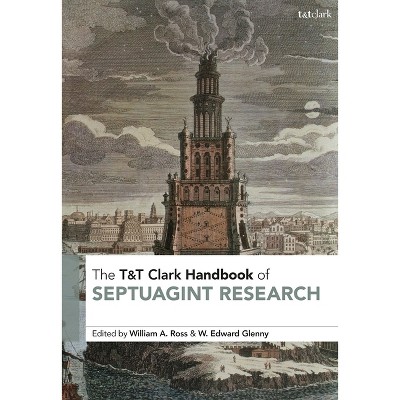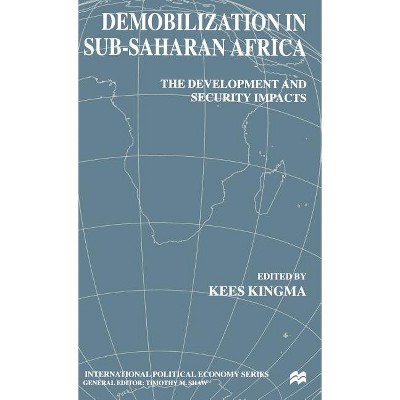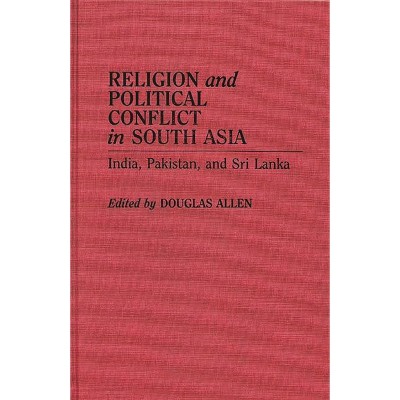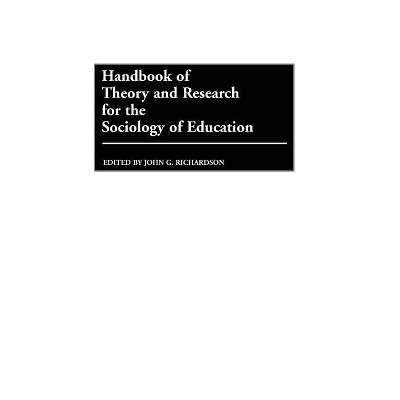Sponsored

Handbook of Political Science Research on Sub-Saharan Africa - Annotated by Mark Delancey (Hardcover)
In Stock
Sponsored
About this item
Highlights
- The last 30 years of African political history has followed a cycle from the euphoria of independence to the depression of economic recession and autocracy to the new era of euphoria as the democracy movement sweeps the continent.
- About the Author: MARK W. DELANCEY is Director of Graduate Studies in Government and International Studies at the University of South Carolina.
- 448 Pages
- Political Science, Comparative Politics
Description
About the Book
The last 30 years of African political history has followed a cycle from the euphoria of independence to the depression of economic recession and autocracy to the new era of euphoria as the democracy movement sweeps the continent. This reference handbook offers an analytical survey of research on African political history for this period, 1960-1990. Fifteen leading scholars address overall patterns, changing perspectives, and areas requiring additional research from nine different national and regional viewpoints. This expert assessment of the significant literature on African political affairs should be of great value to political scientists, historians, and specialists in African affairs.
The handbook is divided into three parts. The first presents continent-wide responses to political and social change highlighting the work of the first generation of African political scientists. Analyses of studies of development administration and international relations are included in this section. The second part contains five regional surveys covering political history, colonialism, nationalism, the post-colonial state, war, and foreign relations. The regions are Eastern Africa, Southern Africa, Equatorial Africa, Portuguese-speaking Africa, and the Horn. Four country studies make up the third part: Cote d'Ivoire, Ghana, Nigeria, and South Africa. An appendix listing social science research centers in the sub-Saharan area and a general bibliography on African politics complete this fully indexed volume.
Book Synopsis
The last 30 years of African political history has followed a cycle from the euphoria of independence to the depression of economic recession and autocracy to the new era of euphoria as the democracy movement sweeps the continent. This reference handbook offers an analytical survey of research on African political history for this period, 1960-1990. Fifteen leading scholars address overall patterns, changing perspectives, and areas requiring additional research from nine different national and regional viewpoints. This expert assessment of the significant literature on African political affairs should be of great value to political scientists, historians, and specialists in African affairs.
The handbook is divided into three parts. The first presents continent-wide responses to political and social change highlighting the work of the first generation of African political scientists. Analyses of studies of development administration and international relations are included in this section. The second part contains five regional surveys covering political history, colonialism, nationalism, the post-colonial state, war, and foreign relations. The regions are Eastern Africa, Southern Africa, Equatorial Africa, Portuguese-speaking Africa, and the Horn. Four country studies make up the third part: Cote d'Ivoire, Ghana, Nigeria, and South Africa. An appendix listing social science research centers in the sub-Saharan area and a general bibliography on African politics complete this fully indexed volume.Review Quotes
?Historians will be interested, as well, in the clear indication of rising African involvement in scholarly activity and in the shift in the countries of most research visits over thirty years. The volume certainly belongs in every library of comparative politics and African studies and probably in every library that aspires to currency in social science.?-International Journal of African Historical Studies
?Recommended for upper-division undergraduates and above; essential for African studies programs.?-Choice
"Recommended for upper-division undergraduates and above; essential for African studies programs."-Choice
"Historians will be interested, as well, in the clear indication of rising African involvement in scholarly activity and in the shift in the countries of most research visits over thirty years. The volume certainly belongs in every library of comparative politics and African studies and probably in every library that aspires to currency in social science."-International Journal of African Historical Studies
About the Author
MARK W. DELANCEY is Director of Graduate Studies in Government and International Studies at the University of South Carolina. He is the author of Cameroon, (1988)
geria: A Bibliography for the Study of Politics, Government, Administration and International Relations (1983) African International Relations: An Annotated Bibliography (1980) and editor of Aspects of International Relations in Africa (1980), among other works.Shipping details
Return details
Trending Non-Fiction









